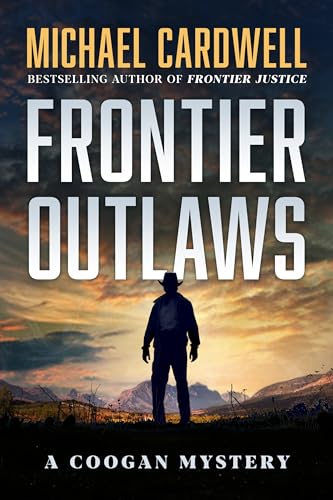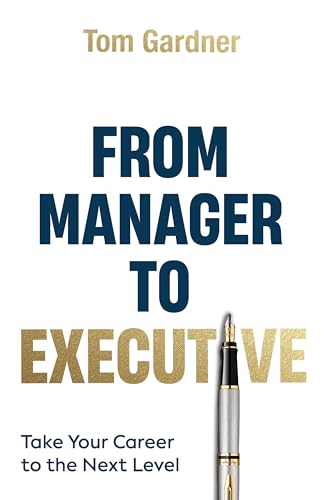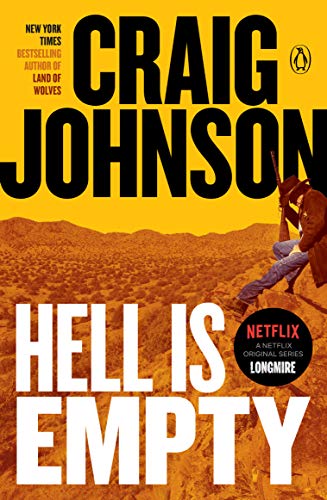On Friday we announced that David Prever‘s The Blood Banker is our Thriller of the Week and the sponsor of thousands of great bargains in the thriller, mystery, and suspense categories: over 200 free titles, over 600 quality 99-centers, and thousands more that you can read for free through the Kindle Lending Library if you have Amazon Prime!
Now we’re back to offer our weekly free Thriller excerpt:
The Blood Banker
by David Prever
#5 in all books – Thrillers, and #3 in the Kindle Thrillers Chart.
The body of a French banker lies under a train on the London Underground: the first of three of three ‘banking suicides.’ A tragic result of the economic downturn.
Former tabloid reporter, turned blogger, Danny Lightfoot needs a story. And something about the tube death doesn’t add up… When a second banker takes his life, then a third, he’s certain of wrongdoing.
In a race to reveal the truth, Lightfoot uncovers a laundered money trail that leads, via Hong Kong and the world’s largest online criminal cartel, to the heart of British government: Number Ten Downing Street – and a man who will stop at nothing to achieve the power he craves.
But with a hired killer watching his every move, can Lightfoot banish his demons and face down the evil that threatens his life?
And here, for your reading pleasure, is our free excerpt:
Chapter One
Sebastien Flement had often wondered about taking his own life. He was curious enough to have read an internet article on the subject and knew that, according to statistics, most suicides happen on a Wednesday. It was unusual, then, that his death occurred on a Sunday morning, with one hundred and fifty tons of electrified steel hitting the side of his head at forty miles an hour.
Clean-shaven with a mop of dark hair, Flement stood over six feet tall with a build that was lean and well toned; regular long runs along the Grand Union Canal had shaved close to a decade off his forty-six years. Even on a Sunday, he looked sharp in the dress-down weekend uniform of pressed beige chinos, blue button-down shirt and tailored overcoat. Clutching the weekend papers and his briefcase, he walked the one hundred yards towards Warwick Avenue station, took his last ever breath of what passed as fresh air in London and descended the long escalator, inhaling the Tube’s trademark mix of tunnel dust and stale heat.
Alone on the platform, he walked towards the tunnel and ignored the raised bumps that served as a warning to stand back from the edge. A red triangle with a zigzag arrow alerted the passengers: Danger – electrified tracks. In the distance, he heard the familiar rumble of an approaching train, accompanied by a drop in temperature. Above his head, six CCTV cameras recorded every movement on the platform. Scanning his newspaper, he didn’t notice as one by one the rectangular boxes lost power and shut down. At the same time, an error message appeared on the southbound platform monitor in the ticket office upstairs: System software failure: error reported.
The Sunday headlines were bleak, with reports of record national debt. His own exposure was minimised but there were still some losses, meaning changes to the family lifestyle. They had moved from Paris three years ago when the twins were just two and just before Cecily was born. Lured by the charm of Little Venice, the canal boats and cafes, the Victorian property had seemed a good place to call home. The house had taken two years to finish and was almost rebuilt by the time the last bulldozer left. The project had been Madeleine’s baby and worth every penny of the half a million pounds it had cost to control her homesickness. The money didn’t matter; he’d do anything to keep her happy. His consolation was a basement cinema room, a bolthole where he could switch off his worries and watch endless sports coverage until, beaten by exhaustion, he’d drag himself upstairs for a few hours sleep.
Flement read the message on his Blackberry again. Sunday, 9am – Emergency meeting. Attendance critical. Weekend meetings had become the norm. Stock markets had closed the week at a record low. Trading would start in the Far East at midnight, London time, with more panic selling expected. As finance director with CAI Asset Management he had seen the banking crash coming and should have warned the board that markets were overheating. They wouldn’t have listened. Nobody wanted to hear bad news, including his boss. Even now his warnings fell on deaf ears. Friday’s meeting had ended badly. The ultimate danger, he believed, was that sooner or later the government might not be able to meet its loan repayments and markets would drown overnight. At one point he’d raised his voice and declared, ‘You can’t solve a drunk’s alcoholism with a bottle of whiskey.’ The statement had been met with tumbleweed silence around the room and some awkward throat clearing from the chairman. Sir Charles Lloyd believed that more, not less, spending would rescue the country. His silent co-directors had fumbled with their notepads; pointless show ponies hired to nod on cue.
The dot matrix sign flashed an update: Next train five minutes. His punishing weekday schedule had rolled into the weekend again. He felt no better than a functioning drunk and craved a nap. A double-espresso, his drug of choice, would have helped. The boss couldn’t abide poor punctuality. His fix would have to wait.
Railwayman Jack Field took a sip from his flask of tea, waited for the green starter signal and then eased his train out of Maida Vale station into the dark tunnel. The driver struggled to adjust his failing eyesight as the train reached its maximum forty-five miles an hour. He was close to retirement age with another medical due in a few weeks.
The cabin lurched to the left and then again to the right. He shifted the handle anticlockwise and applied the brakes. Aging rails scraped against forty-year-old rolling stock, like fingernails on a chalkboard. Jack Field knew every inch of the track, but the noise was still unsettling. There was another sharp turn and a tiny circle of light emerged in the distance: the platform at Warwick Avenue.
The cab radio squawked a message about delays at Waterloo; the rest of the service was running well. The circle of light was growing bigger, almost filling the cab window. He passed another green and could see the platform now, just around a final bend. On a weekday morning it would be full of passengers, but today it looked empty. His shift would be over by midday. Perhaps he could fit in a couple of pints at the union social club before Sunday lunch.
Flement stared at a poster across the tracks: a golden beach with clear blue water and the seductive slogan, Less than three hours away, what are you waiting for? In a light trance, he didn’t hear the robotic voice announce the next train. And he didn’t pay attention to the man in a reflective orange vest walking towards him, pushing his bucket. An invisible worker, carrying out menial duties for minimum pay. Flement felt calm and in control for the first time in months. His worries were behind him now: the stress of the last few weeks would be wiped out in a second; the children’s future different to their carefree life in London, less affluent, but secure.
The decision was made. He’d take Madeleine to dinner this evening. That new place, by the canal. They needed to talk, away from the chaos of family life. He would explain the files he’d seen. Information in black and white confirming his worst fears. She would understand his plan. He knew what had to be done.
A mouse scurried under the track, dragging a half-eaten burger. In a light trance, he watched the rodent disappear into the tunnel. The man was closer now, behind him, washing the famous London Underground sign. As the rails started to vibrate, he turned and landed the wet mop between Sebastien Flement’s legs.
‘Sorry, mate, an accident; didn’t meant to do that,’ he said in an Eastern European accent.
Unnerved by the sound of the approaching train, Flement turned and lost his balance, slipping on the soapy platform. His reaction was instinctive. As he clawed at the air he noted tiny details of the man’s appearance: cropped hair, pale skin and a diagonal scar etched across his square jaw. In the time it took to memorise the information he realised, with perfect clarity, that the details were pointless. His ankle twisted under the mop. He reached out again, but there was no hand for support, only a clenched fist followed by a sharp nudge in his taut chest, a sudden blast of warm air, two bright white headlights and the cab window of Jack Field’s train bound for Elephant and Castle silencing his scream as it thundered from the dark tunnel.
Chapter Two
‘What’s your name, pal, want to tell me your name?’ A trickle of blood dripped from the driver’s nose onto his lip. Archie Drew handed him a stained handkerchief from his pocket.
‘He hasn’t said a word yet, Inspector, shall I stay with him?’
‘If you would, local units are on the way. Does he look as though he might tell you what happened?’
‘I don’t think so, not for a while. I’ll call you if he does.’
He replaced the phone. Ten minutes earlier, Archie Bell had led the train’s passengers up the escalators and closed the station gates. He stared at the CCTV monitor. What if the passenger is alive, still breathing? he thought. There should have been at least two staff on duty, but his guard had phoned in sick, suffering from a recurring weekend hangover. On any other Sunday he could have coped on his own, but with a body under a train it was about to get busy.
The image flickered. Black and white lines danced across the screen. He thought he saw an arm move under the front of the driver’s cab, or was it a leg? His mind was playing tricks. Archie Bell gave the monitor a thump.
His first aid training was meant to help in situations like this, but he didn’t recognise the driver’s symptoms. Blood had drained from his cheeks and, worst of all, a foul stench was beginning to spread around the small, airless room. The supervisor guessed that the driver had soiled himself.
‘What did you see, mate? Do you want to tell me what you saw?’ he asked again.
There was still no reply. The handkerchief dropped to the floor. The man, who must have weighed at least sixteen stone, tried to lift himself up. Falling backwards into the chair, his shaking hand fumbled for a glass of water, spilling the contents over Archie Drew’s desk.
Inspector Kevin Walters sat at the Top Table, the command area of the British Transport Police Force Control Room, London, and surveyed his surroundings.
The low-ceilinged room was no bigger than a tennis court and looked like any other call centre – faded green, peeling paint, coffee-stained floor tiles – except the staff were wearing police uniforms. Twelve communications officers sat at their workstations on the tenth floor of the art-deco building above St James’s Park station, controlling British Transport Police movements in an area spreading from Norwich down to Southampton including the London Underground. Opposite the Top Table two TV screens attached to a pillar displayed CCTV images and Sunday Worship on BBC1.
Until ten minutes ago, Inspector Walters had been passing the time reading through the list of incidents from an uneventful Saturday night, the usual mix of post-match football incidents and disorderly drunks. Then, at eight thirty-five, one of three permanent lines from the London Underground had flashed red, indicating an incoming 999, the first of the morning. An officer had patched the call through to her boss. The rest of the room had snapped into a slick drill, despatching local units.
Now, the inspector took off his headset. ‘The driver won’t speak, can’t speak apparently. Station supervisor says he’s not making any sense. Sounds like shock to me.’
The sergeant sitting next to him tapped the buttons on the ICCS system, the Integrated Command Control Screen, to bring up the latest status report.
‘We’ve two units on the way. Do you want to send a duty sergeant?’
‘We should do, see who we’ve got upstairs. Sounds like a non-suspicious – the supervisor says the platform was empty – but best be certain.’
Three local units had already been called to attend. Sergeant Alan Manning, sitting alongside Inspector Walters, was weary and his shift had only just started. With twenty years of experience he knew that the same old battles were about to begin. And here we go again, he thought. Three quarters of an hour, if we’re lucky, to sort this out. It was policy to have the Tube running again within forty-five minutes. Forensic evidence would be contaminated. The witnesses and suspects, if there were any, would have been evacuated and sent home, with no details taken. He called through to the London Underground Network Operation Centre next door to confirm that paramedics and undertakers had been notified.
The Cleaner had watched Flement leave his house, on time, from the safety of his Range Rover on Clifton Gardens and followed him underground. Leaving the station had been easier than he’d anticipated. With no staff on duty he’d jumped over the gate, unnoticed. Back in the car, he reached under the seat and brought his laptop to life. The station’s CCTV screens had switched back to active, just as he’d planned. Hacking into the settings had been easy enough. All recordings for the last fifteen minutes would be missing and blamed on poor service contracts. The ticket office window was still shut. He switched cameras. Another grainy image showed a cross section of the southbound platform, with an unmanned train that looked as if it had parked halfway down the track.
The Emergency Response Unit – the Underground’s dedicated team of rescue specialists – arrived first, followed by an ambulance and motorcycle paramedic. Boxes would be ticked, due process would be followed. Flement stood little chance of surviving the six hundred and thirty volt rail, but suicide attempts sometimes failed.
A keen Sunday jogger and an elderly dog walker with a ragged terrier had formed the beginning of a small audience, braving light rain to watch the local drama unfold. Two British Transport Police officers manned the station entrances, cordoned off by blue and white incident tape wrapped around lampposts.
‘Bloke chucked himself on the track. Bloody selfish. Some poor sod’s gotta go down there ’n’ scrape him up,’ said the old man.
The Cleaner wound down his window and listened to intermittent police conversation from an officer’s airwaves radio. A row was underway as to who had communications priority. Only three radios could work at the same time underground. A paramedic emerged from the station steps demanding a stretcher. The Cleaner relaxed in his seat, enjoying the chaos.
The southbound track was a mess of hot, twisted metal. The driver’s cabin was lifted to a twenty-degree angle and looked like a jet about to take off. An officer from British Transport Police took photos for his report, struggling with the focus. The camera’s flash lit up the track, causing a firefighter to drop his wrench and slip off the rail.
‘For fuck’s sake, do you have to do that? It’s not a bloody wedding.’
The officer ignored him and released the shutter a couple more times. A blinding white flash bounced off the tunnel walls.
Two undertakers from P. Alfred & Sons Funerals – one grey-haired and gaunt, the other little more than a teenager – waited on the platform with a black body bag. The man had already been certified dead by one of the paramedics. As soon as the train was lifted they could remove what was left of Sebastien Flement and deliver his remains to the mortuary near the river Thames. The coroner on call would have been woken by a buzzing pager. A file would be opened; medical, pathology, psychology and police reports would help the coroner rule sometime in the next three months that, beyond reasonable doubt, Sebastien Flement had taken his own life.
A worker in an orange vest heaved himself off the track and onto the platform, wiping away sweat and black grime.
‘The body is still intact, but his head’s smashed to bits. You can’t recognise the skull.’
He was holding a clear plastic bag with the dead man’s belongings including the contents of a wallet: half a dozen credit cards, some cash and a picture taken on holiday of a woman with three children, all young girls. A local police officer would be given the task of telling her that the girls’ daddy wouldn’t be coming home today, or ever again.
Another worker was untangling Flement’s jacket, still caught up in the train’s wheels. ‘Looks like he was dragged along the track,’ he said.
As the body came loose, the young-looking undertaker, three days short of his twenty-first birthday, stepped down onto the rails to help, telling himself it was just a job and this was just another body.
‘Your first “one-under” is it, son?’
The undertaker nodded as he stood in the so-called ‘suicide pit’ and lifted Sebastien Flement’s blood-stained leg off the track before realising it was held in place by his trousers and no longer connected to his hips.
At street level, the airwaves radio sputtered an update: ‘Deceased being removed now. Incident is non-suspicious. Driver is male, early fifties, disorientated, no verbal communication, suffering post-traumatic stress, signs of cardiogenic shock. We’ll take him to St Mary’s?’
The Cleaner didn’t wait to look at the casualty. He collected a holdall from the boot and walked towards Little Venice, under the Westway and into Paddington Basin alongside the Grand Union Canal. Narrow boats decked with dead plants, washing and bike spares fought for space and a prime mooring. The peace and tranquillity of the waterway clashed with the roar of the dual carriageway above.
Behind him, he heard the siren and smiled as the ambulance came into view on the flyover, heading towards Bishops Bridge Road. Accident and Emergency would be quiet this time of day; the driver would be admitted and rigged up to life-saving tubes and machines. Walking along the cobbled pathway, he could see the top floors of St Mary’s Hospital in the distance. Reaching inside the bag, he traced the outline of the pen-injector. In the front pocket was a stethoscope.
He had an appointment with his patient.
Chapter Three
Jack Field pulled at the hospital’s nylon sheets. He was desperate to rub away dried mucus from the corners of his eyes, but his arms felt like lead weights. Less than an hour ago he had been in the cab of a Bakerloo Line train; now he was lying on a gurney, surrounded by a blue curtain. There was a needle sticking into the pinched skin below his wrist. A long tube was looped over a drip stand, pumping essential liquid into his body, keeping him alive. The smell of chemical disinfectant was overwhelming.
From beyond the doors, he heard the clank-rattle-clank of a trolley followed by a cockney-sounding male voice.
‘Piece. Of. Crap.’
The trolley moved off again with the sound of clattering metal fading into the distance, followed by more expletives.
He could remember the first part of the day in vivid detail.
He’d booked an early turn on duty, on time at Stonebridge Park at seven twelve, taking the train out to Elephant and Castle at seven twenty-three, returning again at eight thirty-eight. After ten years on the Bakerloo Line he knew the timetable by heart. Filling his flask with fresh tea, he’d been off again. Harlesden, Willesden Junction, Kensal Green, Queen’s Park, Kilburn Park, Maida Vale, he remembered, repeating the stations over and over in his mind and then… nothing. A complete blank. Some people were talking to me in the ticket office, the ambulance and… A surge of pain spread across his chest. Another thin hollow tube, this time hanging out of his neck, was wired to a box by the side of the bed. It whirred into life, stopped for a few seconds and then printed his vital data onto a slip of paper, like an old-fashioned telex machine.
Sleep came again within seconds, but lasted just a few minutes. He opened his eyes; a nurse and two men in shirtsleeves were standing at the bottom of the bed, one older than the other.
‘Cardiogenic… intra-aortic… sedative… shock… monitor for the next hour… post-traumatic stress…’ The older man looked down at a clipboard and hooked it onto the end of the bed. The nurse said something and smiled at them both. He struggled to connect the words.
The older man moved towards him, leaning in so close he felt his breath; the strong smell of coffee and cigarettes was enough to make him wretch. If he’d had the strength.
‘Mr Field, I’m Richard Wayman… consultant… nasty shock this morning I know… problems with your heart that you didn’t know about… going to keep an eye…’ The man continued to speak, but Jack Field couldn’t listen any longer, each word fading as the drugs and shock dragged him back to sleep.
St Mary’s Hospital towered over the A40. Various outpatient departments and offices spread into neighbouring streets and buildings, competing for land with Paddington mainline station next door, a monument to bad planning rather than clever design. The Cleaner walked alongside several portable office cabins and turned left into South Wharf Road.
The sign for Accident and Emergency pointed to a curved pedestrian ramp that led to the first floor. He reached inside his jacket and felt for the stethoscope, placing it around his neck. With six hundred beds spread over twelve floors, this was the easiest place in London to go unnoticed. If anyone asked, he was a consultant in A&E.
The automatic doors at the top of the ramp opened into a small, drab waiting room with plastic chairs facing an old-style portable TV hanging from the ceiling. A young mother sat in the corner with a teenage girl, her arm wrapped in a blood-drenched towel. Two police officers stood by the coffee machine, trying to follow the instructions. He recognised them as British Transport Police officers.
A stern, pale-faced receptionist sat behind ceiling-height glass. The Cleaner approached the desk and smiled, before looking down at his mobile phone. Behind her, a wipe board listed recently admitted patients. There were two names scribbled in red ink: Mrs Annette Turner and Mr Jack Field. Alongside both were the initials CDU.
The receptionist noticed the stethoscope and managed to find time for the tall consultant staring down at her. His square jaw, with an impressive scar beneath Sunday morning stubble, won her attention and she pushed her paperwork to one side.
‘Morning, Doctor, can I help you?’ Her voice whistled through the intercom grill.
‘I’m fine, thank you, Mrs…’
She replied before he had time to read her name badge, shouting through the broken speaker. ‘Frazer, Ms Frazer.’ The noise was worse this time. Her cheeks blushed as she fumbled with the volume. ‘I’m sorry, so sorry, how can I help?’
The Cleaner pretended not to hear the question. A high-pitched tone filled the waiting room again as the handsome man turned to face the double doors, and was gone.
A wide corridor led to the main lifts, with hospital directions on every available space. A sign, in five different languages, pointed to CDU – Clinical Decisions Unit, immediately to his right. As he was about to open the door, two doctors appeared from a side room and went in ahead of him. Avoiding eye contact, The Cleaner kept walking towards the disabled toilet. Locking the door behind him, he noted the time, sat down on the seat and waited.
After only a few minutes, he heard footsteps on the other side of the door, followed by a frustrated hand turning the lever one way and then back again, trying to force it open.
‘Anyone in there? Hello, anyone in there?’ the woman said in a cockney accent.
He ignored her. She waited, then walked away. And then the handle moved again. She was back.
‘My son needs to go. What are you doing in there?’
The Cleaner didn’t like too many questions.
‘Must be bloody broken. Come on, we’ll find somewhere else.’ The sound of a child’s sobs faded down the corridor, with the mother moaning about inefficient hospitals and broken facilities.
The Cleaner had no way of telling whether the doctors had finished their ward visit. He thought of the lesson taught to him at the National Defence University in Warsaw: When a man is in a hurry, the devil is happy. He sat back and emptied his mind, as he’d been trained to do during the endless hours of interrogation training.
After thirty minutes, The Cleaner opened his eyes, took some overalls from his holdall and pulled the uniform over his clothes. He then extended the telescopic handles on a fold-up mop. The fee was fifty thousand euros with no complications. The man lying in the ward next door was a complication that had to be dealt with. He checked in the mirror and adjusted his sleeves. He was ready.
He listened for any sign of noise and slid the lock to the right. The corridor was empty. Ignoring the sign to ‘Disinfect hands and save lives’, he pushed at the swing doors leading to the CDU and entered a ward with eight beds. There were no flowers or personal touches from concerned relatives. This was a holding bay for casualties before they were dispatched elsewhere. An old woman was asleep by the window, high on medication. The other occupied bed was surrounded by a curtain.
Jack Field strained to open his eyes. Someone was moving around the cubicle, wiping the floor. He tried to focus on the man’s face. He’d lost all sense of time. How long had he been lying here? The man was holding a clipboard, studying his notes. He looked up and smiled.
‘Mr Field, how are you feeling?’ he said.
The railwayman tried to reply, but his throat was dry and the words wouldn’t form. He rolled his tongue over his lips, hoping to find some moisture. Trying to form a sentence, he lifted his head and coughed up a word before falling back into the pillow.
The man smiled and continued to wipe around the bed. ‘I understand, no need to reply. You won’t be here long, I’m sure. The doctors are very good,’ he said.
Jack Field thought again about the lost morning. On time at Queen’s Park, a couple of passengers boarded at Maida Vale and then? Still nothing.
Why couldn’t he remember Warwick Avenue?
The man squeezed his hands into a pair of latex gloves, lifted up the blanket covering the patient’s legs and held his left foot, pulling the big toe to one side.
‘This won’t take long,’ he said. Reaching inside his pocket, he pulled out a fat tube that looked like a marker pen.
‘Just just a small sedative, a top up. Won’t cause you any pain at all.’
Why is a cleaner giving me injection? What is he doing? he thought, but was too weak to ask.
The Cleaner took hold of the webbing between the patient’s fat, callused toes and held the pointed end of the injector against the skin. He heard the ward doors opening and a nurse calling out to the other patient. He didn’t have long. If she found a stranger administering drugs, security would be called. Depressing the end of the injector with his thumb, he sent the human insulin powering into the railwayman’s veins.
As the liquid entered his bloodstream, Jack Field remembered the dull thud against his carriage window as the train turned a corner, left the darkness behind and arrived at Warwick Avenue. He recalled the split second sight of a man’s face hitting his cabin and the sound of something underneath the carriage before he slammed hard on the brakes. There’d been another man on the platform too. The man who was standing at the end of his bed, smiling as he placed the empty tube back in his pocket.
Chapter Four
The twenty-three most powerful men and women in the UK poured out of the Cabinet room in respectful semi-silence. Most of the ministers rushed towards the famous front door; a few chose to linger and trade small talk.
Chancellor of the Exchequer Bernard Sterling was the last to leave. He was one of the few Cabinet members to have experience outside of public life. His publishing empire had made him a millionaire by the time he was thirty-five, a fact he liked to remind his colleagues of with annoying regularity. It was also no secret that he was impatient for a bigger job. But there was no vacancy sign, yet, above the door at Number Ten Downing Street.
Lunch appointments had been cancelled for the second week in a row. The Cabinet meeting had lasted twice as long as usual; a three-hour trawl through every aspect of the financial crisis, ending with a report on the UK Finance Fund. Led by private sector chairman Sir Charles Lloyd, the UKFF had been formed to control government investment of over eight hundred billion pounds in thirty British banks and building societies.
Weaving his way around those ministers who’d lingered to chat, Danny Lightfoot walked towards the main staircase. After four weeks in the job, he still felt a thrill from working in the office of the British prime minister. An opportunity to observe the Cabinet meeting was a real privilege, even if it wasn’t really where he wanted to be.
At eighteen, Lightfoot had arrived at the East London Echo as a rookie reporter. After three years on the local beat, writing about car crime and planning rows, he’d resigned to join The Washington Mail on a trainee scheme. It took him less than a week to realise that Capitol Hill had nothing in common with the back alleys of East London. With an empty contacts book, Britboy, as he was affectionately known, had found the new life tough. An expanding black book of one-night stands kept him busy; the girls liked his English accent. His thin handsome face and muddy-brown eyes helped. But he missed home: the familiarity of angry cabbies and restless misery. Londoners liked to talk about leaving, but never did. Lightfoot had made the big leap oversees, and then – in his mid-twenties – he wanted back in.
Washington DC had felt like an overgrown head office and the call to return home and follow in his father’s footsteps at The Courier, the UK’s biggest daily newspaper, was difficult to resist. After five years of hard work and a run of exclusives, Danny Lightfoot had been made senior investigative reporter at the national title just before his thirtieth birthday. But his career had halted, without warning, six months ago, when over half the newsroom was made redundant before lunch.
He’d passed each day in denial, sitting in cafes until the lights went out. Sending emails, surfing the web and pretending to work. He was convinced the phone would ring. It didn’t. Newspaper revenues were down and nobody wanted to know. The empty hours were punctuated by endless coffees with friends and former colleagues, including Mark Day, a BBC reporter he’d met in Washington, now responsible for digital communications in Downing Street. When Day offered him part-time work on the Number Ten website, he’d accepted without hesitation.
The new position provided what every journalist looked for – access. He felt like a successful bank robber with nowhere to spend his cash. Headline grabbing exclusives landed on his desk each morning. And had to stay there, until they found a way onto his blog. Insider-said.com had started as a hobby; an anonymous diary populated with news and gossip overheard around Westminster. The site had a strong following, with some of his stories picked up by the press. Nobody knew he was the author. With privileged information, he was treading a dangerous path, but took the view that a nuisance blogger wasn’t a Code Red national security threat for MI5.
‘Mr Lightfoot, good to see you’re working hard again.’
James Kelly, a reporter on The Courier, was heading towards him.
‘And you too, James. Here to see the PM?’
‘I am, lots to ask him, plenty of questions. Like whether he’ll still be here at the end of the month.’
Lightfoot ignored the comment. James Kelly had more enemies than friends and a reputation for doing what he was told rather than writing what he believed, meaning he’d kept his job.
The journalist was led up the famous staircase by a secretary. Lightfoot followed behind the squat reporter and turned left on the first floor landing. James Kelly shot him a smile that said I’ve got the job you wish you still had and we both know it, before being shown into the Terracotta Room.
Lightfoot walked back to his office, past Mrs Thatcher’s old study. Seeing Kelly had shaken him up. Since leaving school, Lightfoot had plotted his future: junior and then senior reporter, followed by a deputy editor position and then his own newspaper to edit. Why is that moron interviewing the PM, not me? he thought. And why have I ended up at thirty-seven years old writing copy for the web that nobody reads?
Kelly was right, though: the PM was in trouble. He picked up his messenger bag and made his way out of Downing Street, past the armed protection officer, turning left towards the crowds and Trafalgar Square.
The febrile atmosphere in the office was too good not to share. He crossed over Whitehall to The Clarence pub, ordered a large Americano and sat at a table in the far corner with his back to the wall, waiting for the screen on his laptop to warm up. The buzz of being first was a natural high that he couldn’t resist.
Adrenalin flooded his veins as he clicked on ‘new entry’, typed a heading and began to write the story.
CHANCELLOR TO CHALLENGE THE PM?
Insider-said has learnt that the chancellor will call for the prime minister’s resignation as early as this afternoon. The challenge will come as a surprise to those who expected Bernard Sterling to wait another few weeks before deciding to make a move. It’s understood that Sterling and the PM had a heated exchange at Cabinet this morning, arguing over the power of the UKFF, which manages British investment in the new nationalised banks. The PM is said to be unhappy with the powerful role held by Sir Charles Lloyd, former chairman of the Royal Alliance Bank; another breakdown between the two most powerful men in the UK? A number of candidates are expected to throw their hats into the ring. The chancellor would easily win a leadership contest. We can expect an announcement soon.
He reread the copy. The leak could have come from anyone who had spoken to a government minister in the last hour. With a swig of the remaining coffee, he slammed his finger down on the enter key, updated his Twitter status with a breaking-news strapline and hit send.
Lightfoot left the office around six pm after an uneventful afternoon writing a report on the prime minister’s engagements for the week ahead. The tube journey from Westminster to his flat in Notting Hill Gate was thirty minutes door to door, but the Circle Line was suffering from delays again. He fought for elbow space in the cramped carriage and busied himself with The Evening Standard.
The picture was a family snap from a beach holiday, a young girl sitting on a man’s broad shoulders and twins playing in the sand by his feet. According to the paper, the prominent banker had committed suicide over the weekend. The forty-six-year-old from Paris had jumped to his death in front of a train on Sunday morning, leaving a widow and three young children. Lightfoot closed the paper. From his time on the news desk he knew that most cases of passengers jumping under trains didn’t result in death, unless the train hit you at a decent speed, of course, in which case you stood no chance. The man had been unlucky.
He was still thinking about the Evening Standard report as his train crawled into Notting Hill station. Halfway up the escalators, his Blackberry picked up a signal and began to bleep like a broken vending machine.
The display showed the name Mark, Downing St. He had to answer.
‘Got you at last. That was a clever move then?’ Mark said.
‘What do you mean?’
‘Nice try. But not very convincing. I’ve been told you’re responsible for this blog.’
Danny paused, baffled that he’d been found out, then replied in as steady a voice as he could manage, ‘How did they know?’
‘It must have come up during your security vetting and sat on someone’s desk until now. A leak from a Cabinet meeting is serious stuff. It didn’t take long to trace the source. What were you thinking?’
He knew that the Civil Service vetting process was thorough, but hadn’t expected them to find out about the blog. The website had been registered using a pseudonym and a fake address. He wondered what else was on his file; past relationships, professional contacts, even conversations in which he’d criticised the government and police. There were stories in the bars around Westminster that GCHQ, the government communications agency, sometimes eavesdropped on staff conversations. He’d dismissed the rumours as idle fantasy. Now he wasn’t so sure. His grip tightened around the phone. He wondered whether an agent was listening to their call now, huddled over his work station, making notes.
‘Where are you?’
‘Whitehall. I couldn’t call you from the office. The PM is thrashing around, waving the OSA at everyone, the usual routine.’
The Official Secrets Act was taken seriously by civil servants. Lightfoot hadn’t signed, but knew that it made no difference. The act was a law, not a contract, and he could be prosecuted either way. His boss knew too, but was playing games, trying to scare him.
Mark Day raised his voice above the traffic. ‘I can’t have you back here, you realise that?’
‘I need this job.’
‘I’m not sure you do. Maybe you should try to get back into print.’
He knew he’d been stupid and let the smell of an exclusive get the better of him. ‘I’ve got to go. I’ll be in touch.’ Before he had a chance to shout a reply, his now former boss was gone.
His flat was only ten minutes from the station, a basement conversion near to Portobello Road that he’d bought at the top of the market. The property was now worth at least twenty thousand pounds less than he’d paid for it. Stumbling over the junk mail and slamming the door behind him, he pulled the curtains shut, fell onto the old sofa and powered up the laptop. The once white walls were waiting to see the insides of four sample paint pots balanced on the mantelpiece. Takeaway menus and empty pizza boxes were stacked on his parents’ old glass coffee table, alongside week-old supplements from the Sunday papers. A vast plasma-screen sat on a table in the corner, the only sign of modernity in an otherwise grim bachelor pad.
He switched on Sky News and watched the weather, then was shocked to see his own face staring back at him, an old by-line photo from The Courier, followed by his girlfriend Natasha talking about him in the third person. Stock footage of Downing Street and the chancellor played behind her commentary. The surreal experience of being spoken about in a news story was amplified when his girlfriend’s name started flashing on the phone.
‘Hey, I’m just watching you talking about me,’ he said.
They had been together for six months. Natasha was smart and ambitious. His ego had taken a battering when the paper made him redundant and she had been the perfect girlfriend, keeping his self-confidence in check, encouraging his work on the blog. Now she was reporting on her boyfriend’s exclusive story as though they were strangers.
‘And you think it’s amusing, do you?’
He was often dismissive of her role as a ‘pretty talking head’, even referring to her once as an ‘auto-cutie’, the derogatory name for female TV newsreaders, moving out of the way just in time to avoid a flying vase.
‘Sweetheart, I didn’t expect this.’ He tried to sound like an innocent victim.
‘Then what did you expect? How could you be so stupid? This was a good job.’ She paused, then added, ‘The least you can do is give me a quote.’
‘Are you serious?’
‘Always.’
There was an uncomfortable silence on the line. He’d need her help to get through this.
‘You don’t want to interview me, do you?’
‘Are you joking? I couldn’t look you in the eye and keep a straight face. They’re pushing me to get you on The News at Ten. Just give me a sentence or two, or I might have to make it up.’
Lightfoot knew he had to say something, but what?
‘How about something like… Lightfoot says he felt it was in the best interests of democracy, openness and the spirit of the internet that the facts were in the public domain rather than waiting for the spin doctors to work their dark arts?’ There was another pause.
‘You’re full of crap, you know that?’ she said.
‘Which is why you love me.’
‘I don’t remember saying that.’
Their relationship was at that difficult stage where one of them would soon have to declare their real feelings. Natasha was in a crowded newsroom and wasn’t about to start whispering sweet nothings down the phone.
‘This is serious, you know. The papers will be pissed off that the story broke online, on your blog. And Number Ten are already muttering about the Official Secrets Act.’
‘I know, I just spoke to Mark. I never signed, but it makes no difference.’
A voice in the background, probably her editor’s, called out her name.
‘I’ve got to go. I need to rewrite this for the three o’clock.’
‘Let’s talk about it later.’
She didn’t reply; the line was already dead.
He stared through the screen. The ticker-tape headline played on a loop: NUMBER TEN ADVISOR SACKED FOR WEB LEAK.
The pain was familiar this time. And unless The Courier called and invited him back to his old desk, he was unlikely to feel better any time soon.
















